Margarita Tartakovsky interviews me here on some basic tools and tips when it comes to dream interpretation and analysis for today’s PsychCentral:
When people think about analyzing their dreams, they usually think of psychics with crystal balls, dream dictionaries, or lying on a couch while a Freud-like psychologist tells them precisely what their dreams connote (and it sounds a lot like cigars and sex).
But dream analysis is none of these things. And it’s actually a valuable way to better understand yourself.
Below, clinical psychotherapist Jeffrey Sumber explains why we dream, why analysis is important and how to start interpreting your dreams.
Why We Dream
“Dreaming is non-essential when it comes to survival as a body but is essential with regard to our development and evolution as metaphysical beings,” according to Sumber, who studied global dream mythology at Harvard University and Jungian dream interpretation at the Jung Institute in Zurich.
Dreaming is the communication between our conscious mind and our unconscious mind, helping people create wholeness, he says. “Dreams are the bridge that allows movement back and forth between what we think we know and what we really know.”
Dreams let us play out painful or puzzling emotions or experiences in a safe place. “Dreams also allow us to process information or events that may be painful or confusing in an environment that is at once emotionally real but physically unreal.”
“Dream analysis is a key component in the process of becoming whole as a person,” Sumber explains. Dreams reveal a person’s “deepest desires and deepest wounds.” So analyzing your dreams helps you gain a deeper understanding of yourself.

How To Analyze Your Dreams
One of the biggest myths about dream analysis is that there’s a set of stringent rules people need to follow. But every person is unique, so there are no formulas or prescriptions.
Dreams “can only be understood in the larger context of the individual’s unfolding and self-discovery,” Sumber says. However, there are several guidelines that can help you see your dreams more thoughtfully and dig deeper into their meaning.
Record your dreams. This is the first and most important step in analyzing your dreams, Sumber said. “Taking notes, even a few sentences that encapsulate the dream, literally draws the content of the unconscious out into the realm of the concrete.”
Think you don’t dream or can’t remember your dreams? He suggests simply keeping a journal by your bed, and writing “No dream to record” every morning. “Within two weeks of this process, the person will begin to remember their dreams.” (In fact, “you might open the floodgates!”)
Identify how you were feeling in the dream. For example, Sumber suggests asking yourself: “Was I scared, angry, remorseful, etc.? Do I still feel those feelings the morning after? How comfortable am I feeling these feelings?”
C.G. Jung referred to dreams as “feeling-toned complex of ideas.” In other words, according to Sumber, “We are always being called by our unconscious self to feel into our ideas, thoughts and actions so as to gain a deeper sense of who we are and where we are going in our lives.”
Identify recurring thoughts in your dreams and daily life. Sumber gives these examples of recurring thoughts: “They are going to kill me.” “I don’t understand.” Or “I’m not going to make it.” Next, ask yourself if you’ve had these thoughts throughout the day. If so, in what situations have you had these thoughts?
Consider all the elements of a dream. You can show up in your dreams in various ways. Many times, “we can find ourselves, our personalities, in many elements of a dream, even if there is a clear distinction between us and another character in the dream.”
You can ask yourselves these questions, Sumber said: “What is it like to be the villain in the dream? What is it like to be the aggressor, or be passive?”
 Put down the dream dictionaries. You’ve probably come across dream dictionaries that feature specific meanings for objects. As Sumber notes, while there may be some universal meaning for these symbols, the key is to figure out what the dream means to you.
Put down the dream dictionaries. You’ve probably come across dream dictionaries that feature specific meanings for objects. As Sumber notes, while there may be some universal meaning for these symbols, the key is to figure out what the dream means to you.
“While there may be a trace of collective meaning for certain universal symbols that do have some bearing on our internal analysis and growth, I am far more interested in where the dreamer goes with the symbol and what the dreamer connects to as a result of the dream.”
So, even though there may be some universal elements, symbols have different meanings for different people. “I believe we are all unique and carry very personal histories that impact the symbols, objects, tastes and smells that we associate with a particular dream story or event.”
Remember you’re the expert! “There are no experts other than yourself when it comes to your own psyche so don’t stop trusting your own inner guide to your unconscious,” Sumber says.
He adds that, “therapists need to place aside all of their information, tools and associations for universal symbols and dream interpretation with each new client and treat each person as a unique, new world to be discovered.”
You can learn a lot from even the most mundane dreams. You may be thinking that your dreams just aren’t fascinating, flashy or profound enough to explore. But even dreaming about having oatmeal for breakfast can yield thoughtful results, Sumber believes.
As examples, he lists the following questions you can ask:
“Am I alone with my oatmeal? Am I inside or on a veranda with a gentle breeze? Are the oats organic? Overcooked? Is there a horse nearby? How do I feel about the oats? What do oats typically symbolize for me? Are there any memories that I can tie to eating oatmeal? When was the first time I remember eating oatmeal for breakfast? How did my mother make oatmeal and do I make it the same way as an adult?”
“There is always something to learn about [yourself] in a dream,” Sumber says.
Some of my favorite dream resources:
* Memories, Dreams and Reflections, C.G. Jung
* Dream Psychology, Maurice Nicoll
* An Illustrated Encycolpaedia of Traditional Symbols, J.C. Cooper
* The Wilderness of Dreams, Kelly Bulkeley
* Dreambody, Arnold Mindell
* Dreams, C.G. Jung

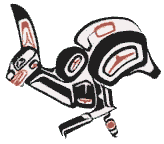 Symbolically, rabbits are skittish creatures. As often as a rabbit eats, a rabbit listens for danger. Rabbits are gentle creatures who like to eat, sleep and have a lot of sex. It’s hard to argue with that. On the other hand, rabbits tend to be generally fear based. Afraid of tragedy, rabbits like to have fun but are always worried that their fun will be taken away. Because they fear something will happen, they create a life of anxiety, sprinkled with moments of pleasure. What an interesting notion for our planet to consider for an entire year!
Symbolically, rabbits are skittish creatures. As often as a rabbit eats, a rabbit listens for danger. Rabbits are gentle creatures who like to eat, sleep and have a lot of sex. It’s hard to argue with that. On the other hand, rabbits tend to be generally fear based. Afraid of tragedy, rabbits like to have fun but are always worried that their fun will be taken away. Because they fear something will happen, they create a life of anxiety, sprinkled with moments of pleasure. What an interesting notion for our planet to consider for an entire year!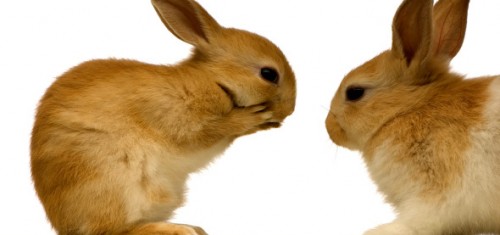

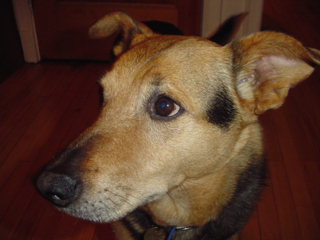
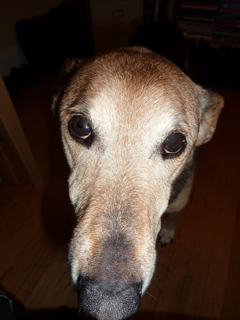 It is said that we choose our relationships and our teachers choose us. The little, scrawny runt sat trembling at the back of the truck and peed a good sized puddle the second I looked at him. “I’ll take the little pisser, please.”
It is said that we choose our relationships and our teachers choose us. The little, scrawny runt sat trembling at the back of the truck and peed a good sized puddle the second I looked at him. “I’ll take the little pisser, please.” 
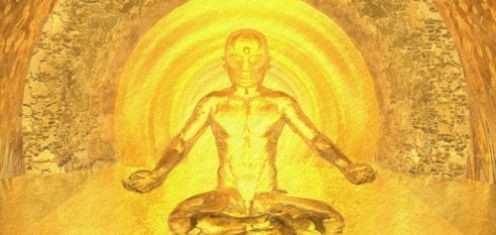

 Put down the dream dictionaries. You’ve probably come across dream dictionaries that feature specific meanings for objects. As Sumber notes, while there may be some universal meaning for these symbols, the key is to figure out what the dream means to you.
Put down the dream dictionaries. You’ve probably come across dream dictionaries that feature specific meanings for objects. As Sumber notes, while there may be some universal meaning for these symbols, the key is to figure out what the dream means to you.
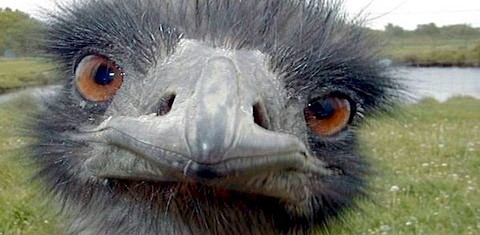
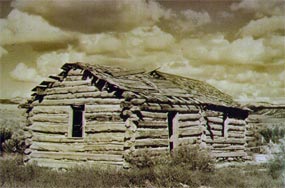 I think about the ways technology and industrialization have made certain challenges much easier and peaceful the past few hundred years. I suppose common folks just made peace with bowel elimination in cities and villages a thousand years ago…until another plague was unleashed. I have a romantic notion of the early American pioneers, setting out from the muddy streets of New York with the intention to work the land and live life under the stars. Create one’s own destiny… what a wonderful banner to soar above our log cabin in the woods. Until the real native stewards of the neighborhood got fed up with the concept of “manifest destiny….”and murdered us. How’s that for anxiety and stress?
I think about the ways technology and industrialization have made certain challenges much easier and peaceful the past few hundred years. I suppose common folks just made peace with bowel elimination in cities and villages a thousand years ago…until another plague was unleashed. I have a romantic notion of the early American pioneers, setting out from the muddy streets of New York with the intention to work the land and live life under the stars. Create one’s own destiny… what a wonderful banner to soar above our log cabin in the woods. Until the real native stewards of the neighborhood got fed up with the concept of “manifest destiny….”and murdered us. How’s that for anxiety and stress?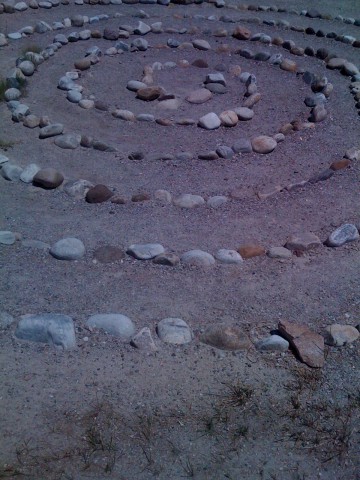
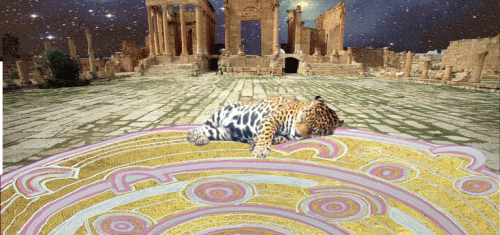

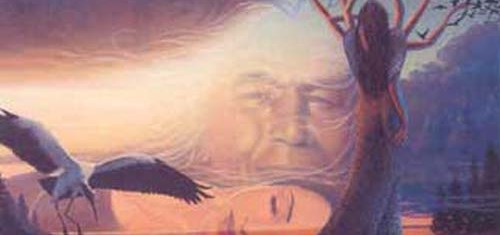
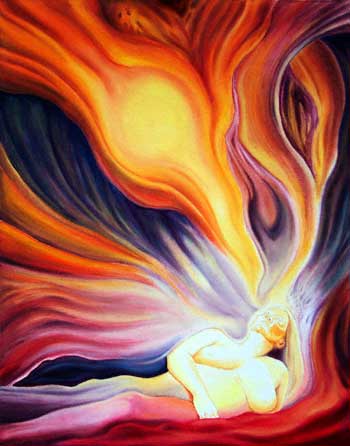


 Jeffrey Sumber is changing the world, one relationship at a time. For over two decades, Jeffrey has worked to understand the human experience from as many angles as possible. As a successful psychotherapist, marriage counselor, and life coach, Jeffrey has worked with thousands of clients who strive to live their best lives.
Jeffrey Sumber is changing the world, one relationship at a time. For over two decades, Jeffrey has worked to understand the human experience from as many angles as possible. As a successful psychotherapist, marriage counselor, and life coach, Jeffrey has worked with thousands of clients who strive to live their best lives.
Recent Comments